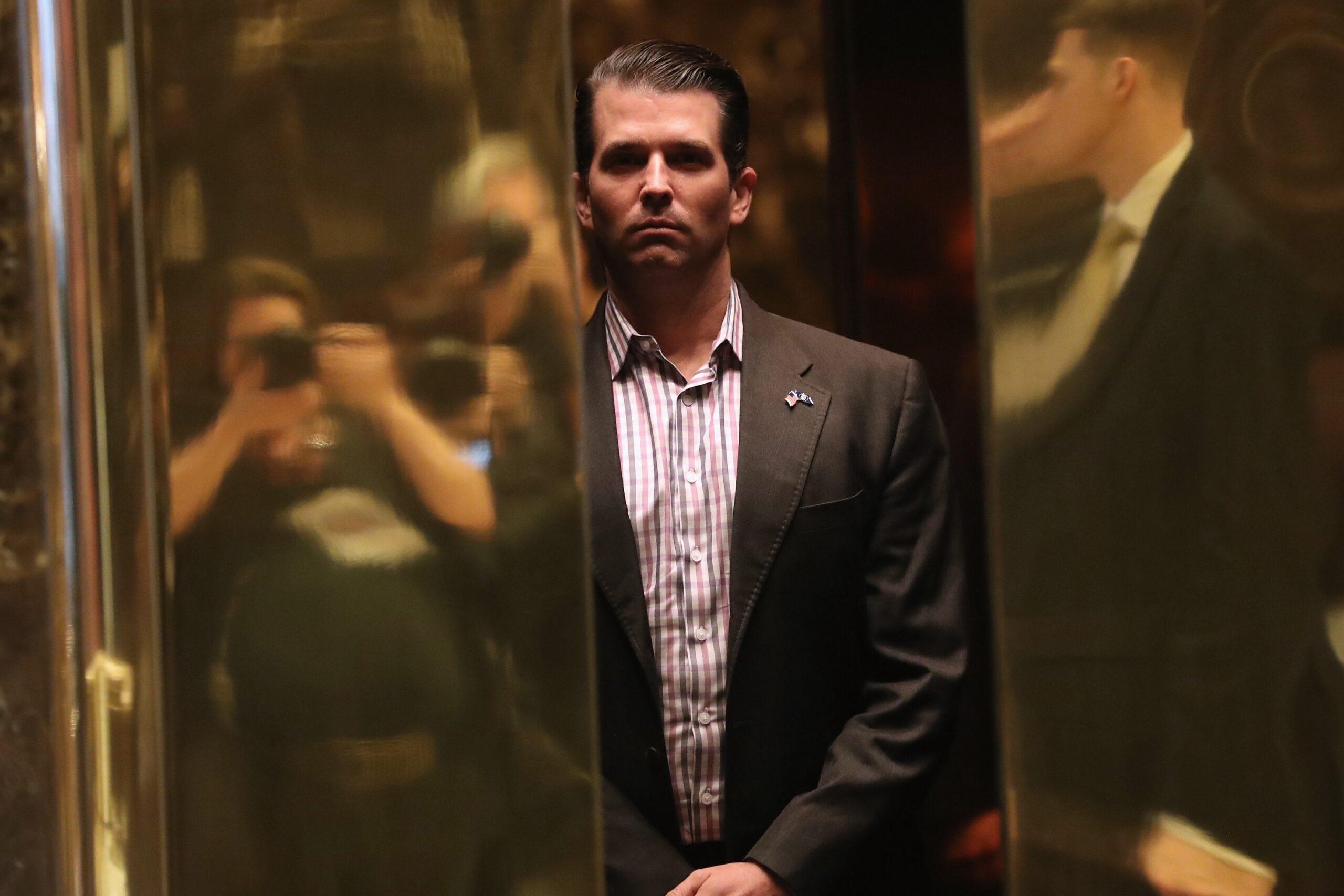Are the Donald Trump Jr. Emails a Turning Point?
The Trump team can no longer deny that it knowingly sought collaboration with Russia. But will that matter?
In the past four days, The New York Times has reported an alarming series of stories regarding the Trump campaign’s relationship with the Russian government during the 2016 presidential election. While earlier media reports revealed that senior advisers — such as former campaign chairman Paul Manafort and former national security adviser Michael Flynn — had engaged in inappropriate correspondence with Russian officials without the campaign’s knowledge, the recent Times stories suggest that Trump’s senior campaign staff was willing to cooperate with the Russian government’s determination to assist Trump’s candidacy. According to the Times, Trump’s eldest son, Donald Jr., had been made aware of these foreign efforts as early as June 2016, when he showed enthusiastic interest in an offer of “high level and sensitive information” that an associate characterized to him as “part of Russia and its government’s support for Mr. Trump.”
The reports allege that Donald Jr.; Trump’s son-in-law, Jared Kushner; and his former campaign chairman Paul Manafort together met with a Russian lawyer, Natalia Veselnitskaya, at Trump Tower in June 2016 — two weeks after Trump clinched the Republican presidential nomination. According to several anonymous sources, including White House advisers, who spoke with the Times, Veselnitskaya requested a meeting with Donald Jr., through a familiar intermediary, the former tabloid journalist Rob Goldstone. The Times discovered “confidential government records” linking Veselnitskaya, who runs a law firm in Moscow, to the Kremlin.
After 48 hours of jokes and half denials by Donald Jr., on Monday night the Times published its first report citing an email exchange in which Goldstone promised Donald Jr. what the NYT called “damaging information” about Hillary Clinton from the Russian government’s broader efforts to boost Trump’s candidacy. Tuesday morning, the Times published a copy of an email exchange — which Donald Jr. has himself now disseminated via Twitter in order to feign transparency in light of imminent reporting by the Times — in which he says he would “love it” if Veselnitskaya provided him with information that proved damaging to Clinton. In his email conversation with Goldstone, Donald Jr. proves that he valued his father’s election to the presidency above the sovereignty of the United States.
For nearly a year, Donald Trump has withstood fierce scrutiny of his political team’s ties to the Russian government. Trump has deflected claims of collusion with the Kremlin by characterizing Manafort’s, Flynn’s, and Donald Jr.’s associations as unrelated and insubstantial. But with the email revelation, Trump officials can no longer deny that the campaign knowingly sought collaboration with a foreign government to upset the balance of a U.S. presidential election, even if Veselnitskaya proved useless to the campaign’s desired ends.
“Obviously I’m the first person on a campaign to ever take a meeting to hear info about an opponent,” Donald Jr. tweeted sarcastically in response to the earlier Times reports. But it is, in fact, highly unusual and profoundly irresponsible for a U.S. presidential campaign to take interest in opposition research from hostile foreign sources. The GOP strategist Nicolle Wallace, who has led opposition research efforts for political candidates, shared her misgivings with Donald Jr.’s characterization of his meeting as standard practice: “I handled oppo,” Wallace tweeted, “but never ever from a foreign adversary.” Donald Jr., Kushner, and Manafort’s consultation with Veselnitskaya does not — to the unending surprise of the president’s critics — meet the constitutional definition of “treason.” But it does suggest a level of recklessness at an official level that dwarfs the Trump campaign’s concerns with Clinton’s email protocol at the State Department — a defining scandal of the 2016 presidential race.
At a July 2016 campaign press conference in Florida, Trump called for Russian hackers to find the 33,000 emails missing from Clinton’s personal email server. Trump and his advisers later described these comments as a joke, and Trump’s running mate, Mike Pence, warned that Russia would face “serious consequences” for any attempt to intervene in a U.S. election. For a campaign to have entertained such an attempt, as the Times reports reveal that Donald Jr. did, constitutes catastrophic misjudgment from a major party’s presidential ticket, though it’s so far unclear whether any criminal charges might ensue.
The Trump administration seems to recognize the gravity of these latest reports. In a statement released late Monday night, the spokesperson for Trump’s personal lawyer said that President Trump “was not aware of and did not attend the meeting,” and Donald Jr.’s personal counsel, Alan Futerfas, has also stressed that the president took no part in the meeting with Veselnitskaya. Kushner has referred all press queries regarding the meeting to Donald Jr., who continues to tweet his own blithe version of the narrative. “Media & Dems are extremely invested in the Russia story,” he wrote Tuesday morning, shortly before he tweeted out his own copy of the seemingly incriminating emails. “If this nonsense meeting is all they have after a yr, I understand the desperation!”
In the absence of criminal charges and a substantial shift in the political cover that the GOP majority in Congress provides, even the most horrifying revelations about the Trump team’s troubling communication with Russian figures may fall short — as they have, time and again — of bringing down the president. But news of the June 9, 2016, meeting with Veselnitskaya is hardly the first sign of collaboration with Russian sources that reporters have pegged to Trump’s political team in the past year, and there’s no telling what else special counsel Robert Mueller’s quiet-as-kept investigation may turn up in the inevitably tumultuous months to come.

